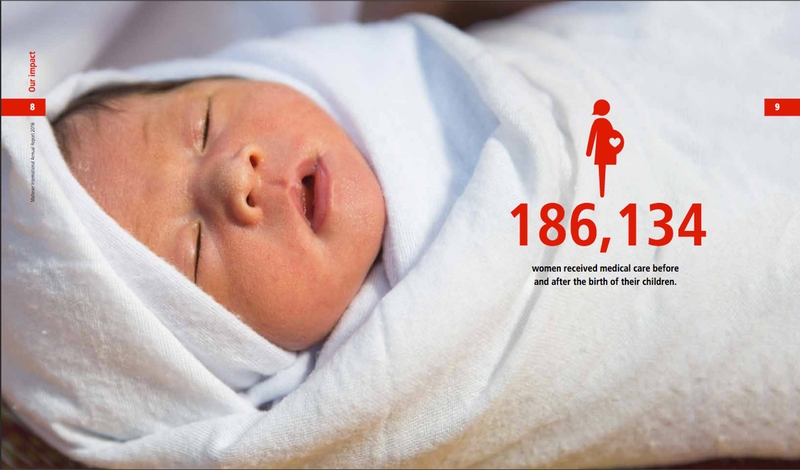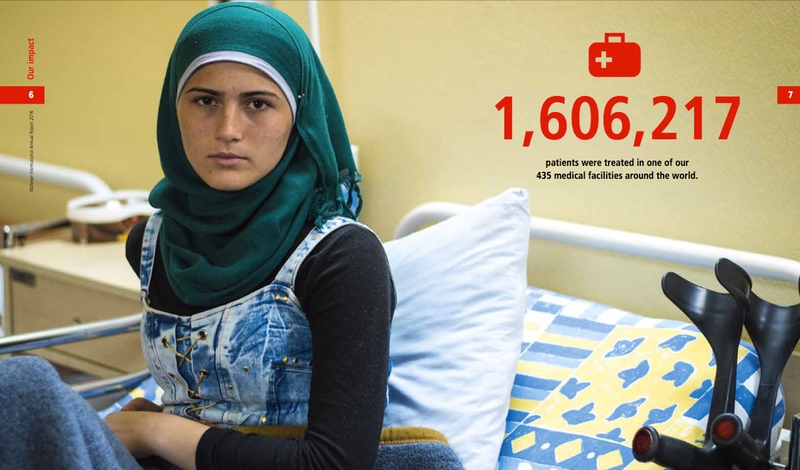From the humanitarian emergencies in Syria, Iraq and South Sudan to the more silent crises occurring far from the media spotlight, such as those in Pakistan, Myanmar and the Democratic Republic of the Congo. Malteser International – the Order of Malta’s global Relief Agency – spells out the numbers of its humanitarian interventions in every corner of the globe in 2016. A year characterized by the various catastrophes that have forced an unprecedented 65 million people to leave their homes worldwide.
“Our priority is to offer medical aid to people forced to flee from long-standing violence in regions whose social and health care services have been destroyed. But our mission doesn’t end here. To meet the needs of displaced persons and refugees we also have to build or strengthen the infrastructure of the host region,” Malteser International’s secretary general Ingo Radtke explains.
During 2016, one million six-hundred thousand persons were treated in one of the 435 facilities Malteser International runs in various countries. Some 186 thousand women received healthcare before and after giving birth and over 178 thousand people received food, clothing and hygiene kits or were housed in one of the reception centres managed by Malteser International’s humanitarian operators.
These figures, together with many others, are to be found in the latest Activity Report published by the humanitarian agency, with headquarters in Cologne, Germany, which currently operates in 24 countries with numerous medical and social assistance programmes, interventions after natural disasters and long-term projects to support communities afflicted by calamities, epidemics or conflicts.
Some of the interventions carried out in 2016
In northern Iraq, Malteser International provides aid to displaced persons in Dohuk, Erbil and Nineveh, and runs mobile clinics able to reach the most remote villages. Malteser International has also launched the “Cash for Work” programmes, thanks to which many women have participated in courses promoting good hygiene, becoming themselves teachers and helping their communities to respect practices that can prevent epidemics.
In Syria, Malteser International supports the children’s hospital in Aleppo, where a neonatal intensive care ward is the only facility in the area able to treat premature babies or those with serious pathologies. The hospital has also a blood bank and produces oxygen that is distributed to other facilities in the country. From the start of the conflict in 2011 to date, the continuous violence and bombings have practically halved the medical structures present in the country.
The humanitarian crisis in South Sudan does not seem to be easing either and has forced many people to seeks refuge in reception camps, such as that in Wau, north east of the capital Juba. Here Malteser International runs courses on agricultural techniques, distributes seeds and also provides free meals to some 3000 school children, while another 2000 are given meals in a similar project in Juba. The agency is also engaged in constructing pumps to guarantee drinking water, while its staff distributes soap to 18,000 people in the camps to improve hygiene.
In Pakistan, one of the poorest countries in the world and often theatre of natural disasters, Malteser International runs disaster preparedness programmes for the local population in areas at risk of floods and cyclones. The projects aim to strengthen the local communities, rendering them more self-sufficient and able to act promptly, thus reducing the damages.














